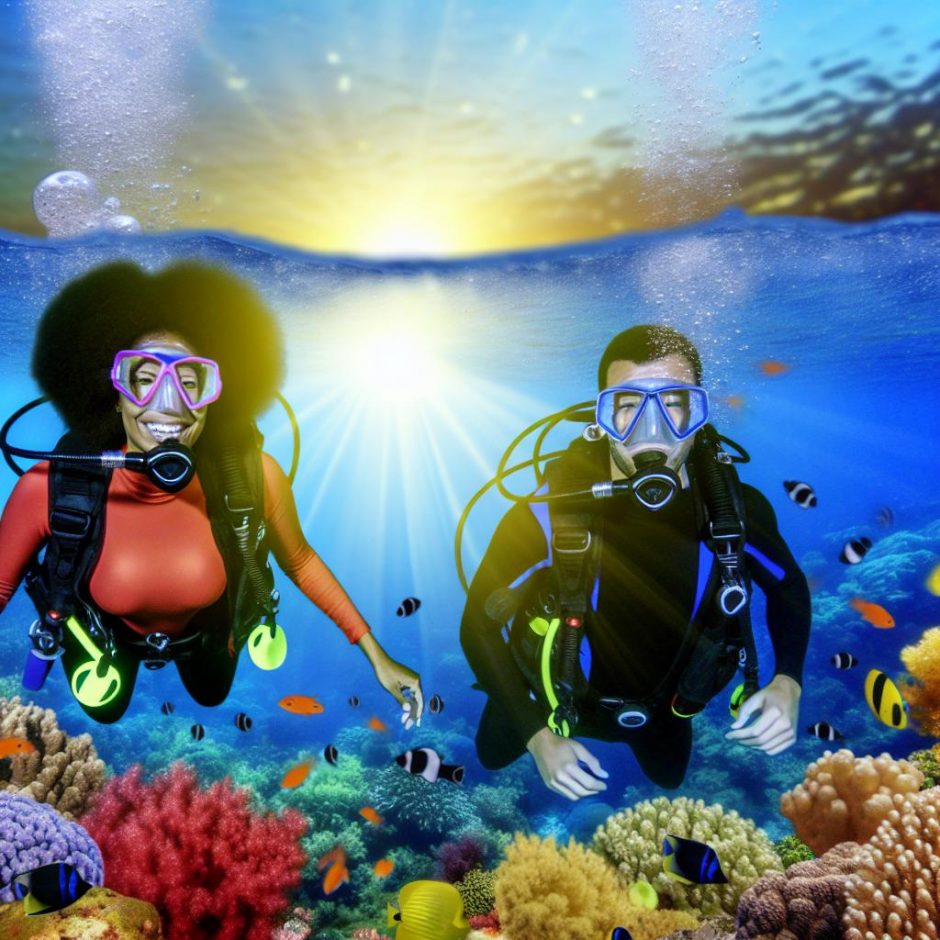Introduction
Scuba diving, often regarded as an adventurous recreational activity, extends beyond the realm of excitement and entertainment to offer substantial benefits for mental health. Far from simply being a thrilling endeavor, it serves as a conduit to well-being through its unique environment and the experiences it provides. Engaging in this underwater activity allows individuals to step away from their routine and immerse themselves in a world that encourages both relaxation and mental rejuvenation. Several key mental health benefits associated with scuba diving can be identified and discussed in further detail.
Stress Reduction
One of the prominent mental health benefits of scuba diving is its ability to reduce stress. The underwater world offers a stark contrast to the noise and chaos often found on the surface, presenting a serene environment that naturally promotes a sense of calm. As divers descend beneath the waves, they enter a sanctuary where the everyday hustle and bustle of life seem to dissipate. The act of scuba diving encompasses rhythmic and controlled breathing, which not only aids in the efficient use of air but also induces a state akin to meditation. This regulated breathing technique helps calm the mind, allowing divers to achieve mental relaxation and alleviate anxiety.
In this tranquil setting, the focus shifts from daily worries to the breathtaking underwater scenery. The spectacular views of colorful coral reefs, diverse marine life, and the gentle ebb and flow of the water create an absorbing experience. This mesmerizing environment can help divers disconnect from their worries, offering a temporary escape into a world that is visually enriching and mentally soothing.
Enhanced Focus and Concentration
Scuba diving is an activity that demands attentive focus and heightened concentration. Divers must remain vigilant, constantly aware of their surroundings, monitoring their equipment, and managing their buoyancy. This necessity for focus is not just a safety protocol but also serves as a mental exercise that sharpens attention spans.
By engaging in regular diving, individuals may experience improvements in their ability to concentrate, not only while submerged but also in their everyday lives. The practice of maintaining a meditative awareness of the present moment during dives can translate to better cognitive function and an increased ability to focus outside the water. The mental discipline honed through diving is a transferable skill, which holds immense value for various life situations requiring sustained attention and awareness.
Connection with Nature
Another significant aspect of scuba diving is the profound connection it fosters with nature. Being submerged in the underwater world offers a perspective of the Earth that few experiences can replicate. This intimate interaction with marine life and the captivating beauty of underwater ecosystems awakens a sense of awe and humility.
Divers have the opportunity to observe the complexity and diversity of ocean life up close, from vibrant corals and curious fish to larger projects like turtles and rays. These interactions can evoke a deep appreciation for the natural world, encouraging divers to adopt a more positive outlook on life. This sense of connection with nature plays a crucial role in enhancing mental well-being, as it not only uplifts the spirit but also encourages a sense of responsibility towards conservation and respect for the planet.
Community and Social Interaction
Scuba diving is frequently pursued as a group activity, providing ample opportunities for social interaction and community building. Diving clubs and organized trips bring together individuals who share a common passion, fostering camaraderie and mutual encouragement. This sense of belonging and community is vital for mental health, offering participants a platform to forge new friendships and share experiences.
Engaging in scuba diving as part of a group allows individuals to feel supported and motivated to continue participating in the activity. The shared adventures and collective experiences also create a sense of unity and understanding, further reinforcing the positive impact of social connections on mental well-being. Having a network of like-minded individuals can significantly enhance the diving experience, turning it into a more fulfilling and socially enriching activity.
For those seeking further insights into the mental health benefits of scuba diving and other aquatic activities, there are numerous resources available. Scientific literature and medical studies delve into the therapeutic effects of water-based activities and how they contribute to mental health improvements. Exploring such resources can provide a deeper understanding of the underlying mechanisms that make scuba diving an effective means of enhancing mental well-being.
Conclusion
Incorporating scuba diving into one’s leisure routine offers a myriad of mental health benefits. From stress reduction and enhanced focus to a strengthened connection with nature and rich social interactions, the rewards of this underwater experience are both diverse and impactful. By venturing into the depths of the ocean, individuals can not only enjoy the thrill of exploration but also nurture their mental well-being. Scuba diving serves as a unique avenue for relaxation, personal growth, and the attainment of a more balanced state of mind. As interest in this exceptional activity continues to grow, so too will the recognition of its value as a beneficial pursuit for mental health.

